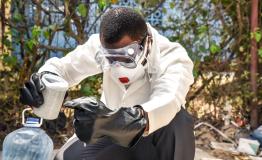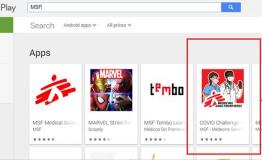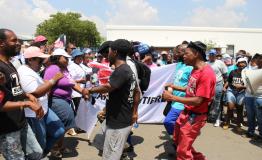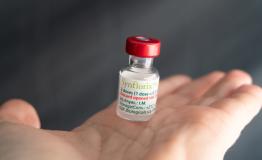

Jordan
When the Jordanian government imposed a strict lockdown between mid-March and the end of May because of the COVID-19 pandemic, we had to adapt, change or suspend our projects.

23,900
23,9
4,530
4,53
700
7
Reconstructive surgery
Our reconstructive surgery hospital in Amman offers comprehensive care to patients injured in conflicts across the Middle East. However, border closures at the beginning of the pandemic forced us to suspend admissions for some months and limit activities to essential surgery for existing patients.
As cases peaked in November, we responded to the health ministry’s request for assistance by opening a 40-bed dedicated COVID-19 ward in the hospital. The ward was shut at the end of December, following a reduction in cases.
Non-communicable diseases (NCDs) and mental health
Our two clinics in Irbid governorate provide Syrian refugees and vulnerable Jordanians with treatment for NCDs such as diabetes and hypertension, leading causes of death in the region. Our services include medical and mental healthcare, psychosocial support, physiotherapy and health education.
In March, when the lockdown started, we switched to phone-based consultations and door-to-door medicine refills. Our mental health projects in Irbid and Mafraq also conducted remote consultations until it was safe for patients to return to the clinic.

MSF COVID-19 intervention in Jordan's Zaatari camp
Baraáh Mazen, MSF nurse in Zaatari COVID-19 treatment centre puts on a protective gown before dealing with infected patients. COVID-19 is highly contagious so MSF is enforcing strict infection prevention and control (IPC) measures within the Zaatari treatment center.
Zaatari camp
At the start of the COVID-19 pandemic, in response to needs identified by UNHCR, the UN refugee agency, we supported the treatment of patients with the virus inside the Zaatari camp. It was assumed that COVID-19 would spread quickly in the camp and overwhelm public hospitals.
We assessed the needs and opened a small treatment centre, where we offered inpatient care in collaboration with the health ministry, UNHCR and other organisations. We also monitored the condition of confirmed patients and their contacts, and transferred patients in need of care to our treatment centre. More serious cases were referred to the public hospital in Mafraq.
No. staff in 2020: 372 (FTE) » Expenditure in 2020: €17.7 million MSF first worked in the country: 2006


MSF challenges COVID-19 myths with new quiz challenge app

MSF and TB activists disrupt opening of TB conference to protest drug corporations keeping life-saving medicines from people

Tips to De-Stress
